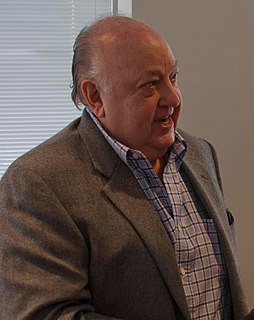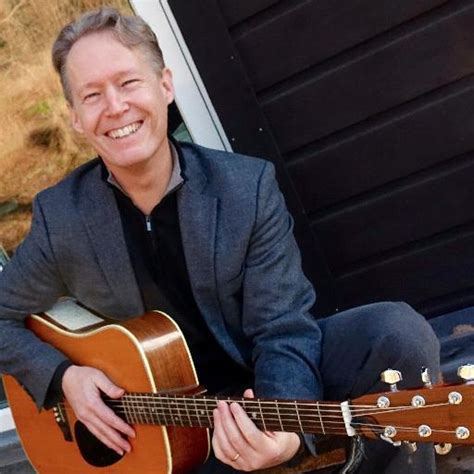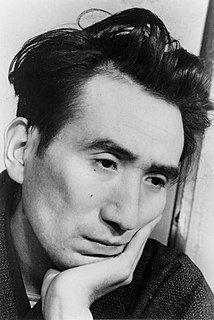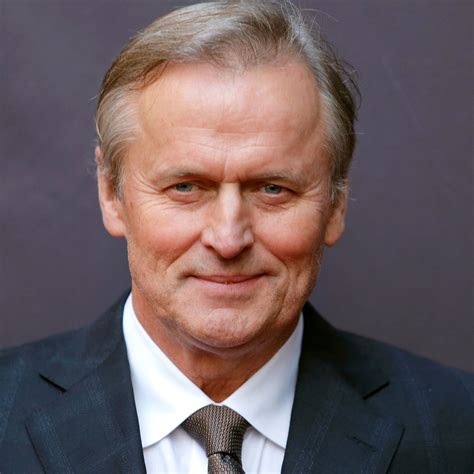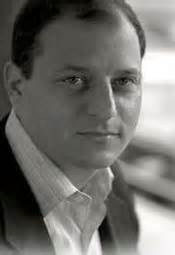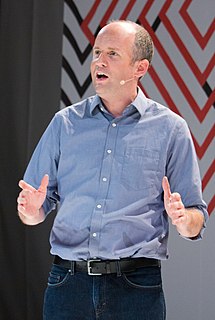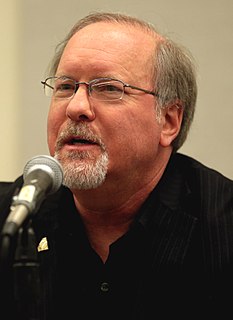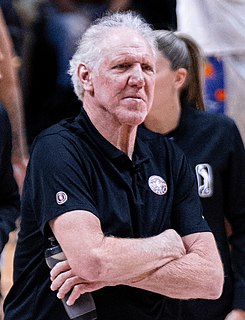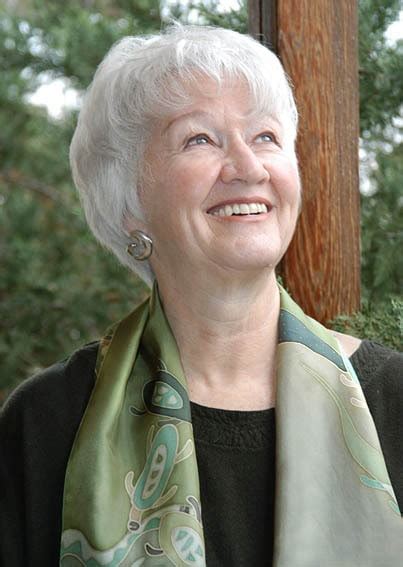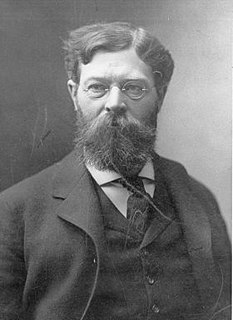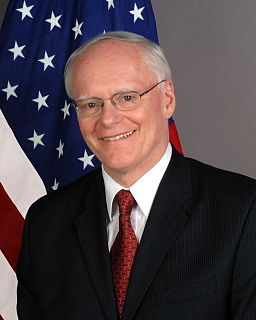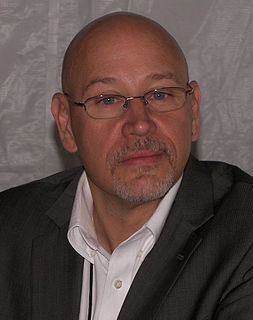Top 912 Optimism Quotes & Sayings - Page 14
Explore popular Optimism quotes.
Last updated on December 18, 2024.
To determine whether or not you have the ingredients to be charismatic, answer the following questions: What are your real feelings about who you are? What do you believe in? Do you have goals or a mission in life? Do you project optimism? Do others turn to you for leadership? Noncharismatic people spend their lives auditioning for others and hoping they'll be accepted. Charismatic people don't doubt their ability to add value to a situation, so they move forward with their mission.
Perhaps this is an area where every generation starts from scratch. Although the crisis of the First World War inaugurated an especially strong period of disillusion with regard to the optimism of the previous age, the pattern has repeated itself in many ways in more recent times, e.g., the loss of faith in politics as a means of advancing human well-being. And perhaps this also has to do with basic elements in growing up.
May I make two citations from the words of a discerning editorial writer, not one of my faith, but one of much faith: "If we neglect the divine . . . and give ourselves over wholly to the human," he said, "we may certainly count upon nothing but the triumph of pessimism. . . . True optimism must rest upon a calm, unshakable faith in eternal life and in the unlimited goodness of him who gives it."
Everything is a meaningless struggle against nothing and when people say that the world has become a better place that is a false development-optimism. Nothing exists which ever becomes better. Everything stays the same. Somehow, there is nothing. That is so sad. Nothing to come to. Everything is an illusion. A very sweet illusion.
...There's a lot more to be gained from being grateful than you might think. Managing your outlook towards appreciation and thankfulness feeds the soul. It brings calm and contentment. It lifts your levels of happiness and hope. Gratitude will amplify your positive recollections about times past, and in turn sets the stage for optimism about the future.
I learned a good deal about economics, and about America, from the author of the Reagan tax reforms - the great Jack Kemp. What gave Jack that incredible enthusiasm was his belief in the possibilities of free people, in the power of free enterprise and strong communities to overcome poverty and despair. We need that same optimism right now.
Truth is, I'll never know all there is to know about you just as you will never know all there is to know about me. Humans are by nature too complicated to be understood fully. So, we can choose either to approach our fellow human beings with suspicion or to approach them with an open mind, a dash of optimism and a great deal of candour.
This famous quote hangs over my desk, as well as the desks of many people with the hubris and optimism to believe they can change the world for the better. It seems implausible, yet time and again history has proven it true. Virtually every major shift in cultural history can trace its origins to the work of a small group, often gathered around an innovative thinker or body of thought.
Peter Biskind's Easy Riders, Raging Bulls was made all about drugs, when to most of us, that just meant pot and magic mushrooms. He made it seem like we were all shooting heroin into our eyeballs. But that's part of the whole '60s and what it represented: feminism and civil rights and trying to stop the war. Hopefully we're starting to see some of that optimism again, through the excitement around Barack Obama.
The incurable optimism of the farmer who throws his seed on the ground every spring, betting it and his time against the elements, seemed inextricably to blend with the creed of her pioneer forefathers that "it is better farther on"-- only instead of farther on in space, it was farther on in time, over the horizon of the years ahead instead of the far horizon of the west.
I have always shook with fright before human beings. Unable as I was to feel the least particle of confidence in my ability to speak and act like a human being, I kept my solitary agonies locked in my breast. I kept my melancholy and my agitation hidden, careful lest any trace should be left exposed. I feigned an innocent optimism; I gradually perfected myself in the role of the farcical eccentric.
The intellectual and moral satisfaction that I failed to gain from the utilitarianism of Bentham and Mill, the revolutionary methods of Marx and Lenin, the social contract theory of Hobbes, the "back to nature" optimism of Rousseau, and the superman philosophy of Nietzsche, I found in the nonviolent resistance philosophy of Gandhi. I came to feel that this was the only morally and practically sound method open to oppressed people in their struggle for freedom.
My optimism and confidence come not from feeling I'm luckier than other mortals, and they sure don't come from visualizing victory. They're the result of a lifetime spent visualizing defeat and figuring out how to prevent it. Like most astronauts, I'm pretty sure that I can deal with what life throws at me because I've thought about what to do if things go wrong, as well as right. That's the power of negative thinking.
Optimism is an alienated form of faith, pessimism an alienated form of despair. If one truly responds to man and his future, ie , concernedly and "responsibly." one can respond only by faith or by despair. Rational faith as well as rational despair are based on the most thorough, critical knowledge of all the factors that are relevant for the survival of man.
Though nihilism has been relentlessly criticized for overemphasizing the dark side of human experience, it might be equally true that this overemphasis represents a needed counterbalance to shallow optimism and arrogant confidence in human power. Nihilism reminds us that we are not gods, and that despite all of the accomplishments and wonders of civilization, humans cannot alter the fact that they possess only a finite amount of mastery and control over their own destinies.
There is an interesting scientific dispute about realism and optimism. Some find that very optimistic people have benign illusions about themselves. These people may think they have more control, or more skill, than they actually do. Others have found that optimistic people have a good handle on reality. The jury is still out.
The American Dream means being part of a society that allows you to be or do whatever you want, and to have a sense that your individual optimism and hard work will be rewarded. It exists outside of the U.S. as well as inside. People continue to come here because they want to improve their lives, they want to be able to support themselves and they want to live in freedom. A lot of people who criticize this country still send their children here to study.
What's great about the geek spirit is that life never seems to stop us, and they never seem to kill our enthusiasm, our optimism and our hunger to experience the world. We keep our sense of humor, we protect our dignity, we talk to our friends about the experience and then we start again fresh the very next day.
A company that was I think the one I learned the most from in Wall Street 2, just in terms of my own character in and the kind of firm he worked in, was John Thomas Financial. There it's like warriors in an arena getting ready for battle. Thomas Belesis just fires these guys up like there is no tomorrow, and I absolutely got addicted to that optimism and adrenaline and that "We're going to do it, we're going to do it, buddy" kind of attitude that he had.
The fatal error of much science fiction has been to subscribe to an optimism based on the idea that revolution, or a new gimmick, or a bunch of strong men, or an invasion of aliens, or the conquest of other planets, or the annihilation of half the world--in short, pretty nearly anything but the facing up to the integral and irredeemable nature of mankind--can bring about utopian situations. It is the old error of the externalization of evil.
Optimism is a strategy for making a better future. Because unless you believe that the future can be better, it’s unlikely you will step up and take responsibility for making it so. If you assume that there’s no hope, you guarantee that there will be no hope. If you assume that there is an instinct for freedom, there are opportunities to change things, there’s a chance you may contribute to making a better world. The choice is yours.
In all probability the Human Genome Project will, someday, find that I carry some recessive gene for optimism, because despite all my best efforts I still can't scrape together even a couple days of hopelessness. Future scientists will call it the Pollyanna Syndrome, and if forced to guess, I'd say that mine has been a way-long case history of chasing rainbows.
Optimism is a matter optics, of seeing what you want to see and not seeing what you don't want to see. Hope, on the other hand, is a Christian virtue. It is the unblinking acknowledgment of all that militates against hope, and the unrelenting refusal to despair. We have not the right to despair, and, finally, we have not the reason to despair
Optimism is not only a false but also a pernicious doctrine, for it presents life as a desirable state and man's happiness as its aim and object. Starting from this, everyone then believes he has the most legitimate claim to happiness and enjoyment. If, as usually happens, these do not fall to his lot, he believes that he suffers an injustice, in fact that he misses the whole point of his existence.
Ceaseless optimism about the future only makes for a greater shock when things go wrong; by fighting to maintain only positive beliefs about the future, the positive thinker ends up being less prepared, and more acutely distressed, when things eventually happen that he can't persuade himself to believe are good.
I am strongly of the opinion that, after the age of twenty-one, a man ought not to be out of bed and awake at four in the morning. The hour breeds thought. At twenty-one, life being all future, it may be examined with impunity. But, at thirty, having become an uncomfortable mixture of future and past, it is a thing to be looked at only when the sun is high and the world full of warmth and optimism.
However, optimism is highly valued, socially and in the market; people and firms reward the providers of dangerously misleading information more than they reward truth tellers. One of the lessons of the financial crisis that led to the Great Recession is that there are periods in which competition, among experts and among organizations, creates powerful forces that favor a collective blindness to risk and uncertainty.
The idea for each of the stories in this book came in a moment of belief and was written in a burst of faith, happiness, and optimism. Those positive feelings have their dark analogues, however, and the fear of failure is a long way from the worst of them. The worst - for me, at least - is the gnawing speculation that I may have already said everything that I have to say, and am now only listening to the steady quacking of my own voice because the silence when it stops is just too spooky.
I suspect that many of the great cultural shifts that prepare the way for political change are largely aesthetic. A Buick radiator grille is as much a political statement as a Rolls Royce radiator grille, one enshrining a machine aesthetic driven by a populist optimism, the other enshrining a hierarchical and exclusive social order.
What would you call America's most priceless asset? Surely not its limitless natural resources, not its matchless national wealth, not its unequalled store of gold, not its giant factories, not its surpassing railroads, not its unprecedented volume of cheap power. Is not its most priceless asset the character of its people, their indomitable self-confidence, their transcendent vision, their sleepless initiative and, perhaps above all, their inherent, irrepressible optimism?
How vain are our fears! I thought to myself. Sometimes we fear that which our opponent (or fate) had never even considered! After this, then, is it any longer worthwhile to rack one's brain to find new ghosts to fear? No, indeed: All hail optimism! - upon playing Hermanis Mattison after he overlooked an unusual knight manouevre.
In closing, let me thank you, the American people, for giving me the great honor of allowing me to serve as your president. When the Lord calls me home, whenever that day may be, I will leave with the greatest love for this country of ours and eternal optimism for its future. I now begin the journey that will lead me into the sunset of my life. I know that for America there will always be a bright dawn ahead.
When tending a vast and beautiful garden, you have to plant many seeds, never knowing ahead of time which ones will germinate, which will produce the most glorious flowers, which will bear the sweetest fruit. A good gardener plants them all, tends and nurtures them, and wishes them well. Optimism is the best fertilizer.
I have faith in the pendulum swinging. Right now it's so far against the wall that it can't go any farther; it's gonna start to swing back. That's my optimism. One of the cures is gonna be getting the American people to fully wake up. All the American people, particularly young people, because they're gonna inherit this earth; they're gonna inherit what we're doing.
There is a place in men's lives where pictures do in fact bleed, ghosts gibber and shriek, maidens run forever through mysterious landscapes from nameless foes; that place is, of course, the world of dreams and of the repressed guilts and fears that motivate them [i.e., the unconscious]. This world the dogmatic optimism and shallow psychology of the Age of Reason had denied; and yet this world it is the final, perhaps the essential, purpose of the gothic romance to assert.
In Jones's experience, the decision to turn one's life around in a different direction rarely arrived with fireworks and marching bands. Often, the decision came with tears and regret. Then, almost impossibly, the power of forgiveness would fill an unseen void, allowing a new day's optimism and sense of purpose to take hold and point that life in a new direction.
My father enabled me to really believe in myself. And yet I've heard very similar stories - from many, many people. It's the way he approached his life. The way he approached his life - he was the eternal optimist. He was the most optimistic person that I've ever known. Even in the face of this diagnosis with cancer, he was filled with optimism about what he could do and what he could accomplish.
I went to my first show [of the Grateful Dead], got right up front and never left. The incredible excitement, the family, the spirit, the hope, the happiness, all the different things I love and live for in life are there. The joy, the optimism, the teamwork, the experimentation, the exploration, the curiosity. No band has inspired more artwork, no band has inspired more books. No band has ever inspired a more loyal following and I'm involved in all of that stuff.
A Positive Mental Attitude is the right mental attitude. What is the right mental attitude? It is most often comprised of the "plus" characteristics symbolized by such words as faith, integrity, hope, optimism, courage, initiative, generosity, tolerance, tact, kindliness, and good common sense. A person with positive mental attitude aims for high goals and constantly strives to achieve them.
The revolutionary spirit is mighty convenient in this, that it frees one from all scruples as regards ideas. Its hard absolute optimism is repulsive to my mind by the menace of fanaticism and intolerance it contains. No doubt one should smile at these things; but, imperfect Esthete, I am no better Philosopher. All claim to special righteousness awakens in me that scorn and anger from which a philosophical mind should be free.
What is irreversible in the Arab world is this intellectual revolution, the awakening that we can get rid of dictators. That is here, and the people have this sentiment and this political power. They feel that they can do it, and it's still there. At the same time, we don't know what is going to happen. So to be very quick by saying, "Oh, revolutions and Arab Spring," and - you know, what I'm advocating is to take a cautious optimism as the starting point of our analysis and to look at what is happening.
Personally, I am enthusiastic about the future. You can be too. You are living in the most exciting period of time in history. Many reasons could be cited for that optimism. Yet your greatest source of hope and assurance is that you have the fulness of the teachings of the Master. They will show you how to live a good life. You can receive ordinances and covenants that when righteously lived assure true happiness and significant attainment.
I have gained and sustained my optimism as a humble student of our living universe, our living Earth, which clearly shows us the way out of our adolescent crisis into a mature global future. The sooner we create our vision of all we desire, set our intention to implement it together, and put our individual capacities into collective action, the greater our chances of success.
[on the screenplay for "When Harry Met Sally"] It struck me that the movies had spent more than half a century saying, "They lived happily ever after" and the following quarter century warning that they'll be lucky to make it through the weekend. Possibly now we are now entering a third era in which the movies will be sounding a note of cautious optimism: You know, it just might work.
As Paretsky detailed in her short memoir Writing in an Age of Silence (2007), early optimism buoyed by the civil rights movement of the 1960s and early 1970s has, in her view, all but crumbled in the face of a bombardment of sadism and misogyny, the withholding of civil liberties, and the nation's move from proud speech into near-deafening silence.
The merchant must be no more pessimist than optimist, since pessimism induces him to hold back his capital but optimism induces him to take such risks that he has more to tear than to hope. Abu al'Fadl Ja'far al-Dimishqi (c. 9th century) Arab writer. The Beauties of Commerce Business pays ... philanthropy begs.
I've always thought New Year's Day was an especially American tradition, full of the optimism and hope we're famous for in our daily lives -- an energy and confidence we call the American spirit. Perhaps because we know we control our own destiny, we believe deep down inside that working together we can make each new year better than the old.
My grandmother was determined that everyone feel a sense of optimism and opportunity. Marc and I want to make sure we're doing that. This period of our lives is not just a tribute to her, it's inspired by her. And it's for when we have our own children — I want to help make sure we've got a world I want them to live in.
Unsatisfied desire is the characteristic feature of human life. That is the common fact out of which both pessimism and optimism are constructed. Dwell on the impossibility of ever getting a state of complete and permanent satisfaction with what you have, and you become a pessimist. Dwell on the opportunity for endless growth and conquest which this same fact makes possible, and you become an optimist.
Plague has hung over human history. The biggest human extinction was after 1492 in North and South America when the mortality rate was 95 per cent, which is enormous. But again, I'm actually giving you grounds for optimism: There were enough to continue. The five per cent who made it through are what you need to survive a bottleneck, which we have been through before.
It's really fascinating. I've never spent time in a place where they lost the wars, so it was interesting and I didn't know much about the history of the country. I didn't know they were under communist rule until the nineties. It's this whole attitude of being defeated, and frowning on optimism and American way of thinking. If we were laughing, Hungarian kids would be like "You're so American."
Yet optimism is in order, because day by day democracy is proving itself to be a not-at-all-fragile flower. From Stettin on the Baltic to Varna on the Black Sea, the regimes planted by totalitarianism have had more than 30 years to establish their legitimacy. But none - not one regime - has yet been able to risk free elections. Regimes planted by bayonets do not take root.
Optimism is in short supply in the Middle East, but what I do think is the administration needs to step up its act. We should use military strikes against ISIS when they threaten the Shia areas or Baghdad. We need to accelerate very rapidly, and we have ways to do it, aid to the Syrians, and we need to be more active, with results, not simply inputs. That is absolutely important right now, because people are questioning our will, not our capabilities.
The tradition of nonviolence, optimism, concern for the individual, and unconditional compassion that developed in Tibet is the culmination of a slow inner revolution, a cool one, hard to see, that began 2,500 years ago with the Buddha's insight about the end of suffering. What I have learned from these people has forever changed my life, and I believe their culture contains an inner science particularly relevant to the difficult time in which we live.
Just when normal life felt almost possible - when the world held some kind of order, meaning, even loveliness (the prismatic spray of light through an icicle; the stillness of a sunrise), some small thing would go awry and veil of optimism was torn away, the barren world revealed. They learned, somehow, to wait those times out. There was no cure, no answer, no reparation. (161)
